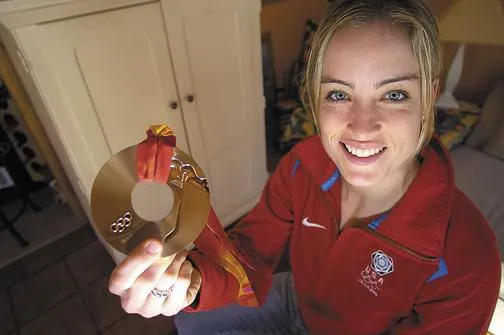Book a demo
To see exactly how we can help you drive your company in the right direction, book a demo with an expert.

Most of us will never compete on the world stage - which is why we're so lucky to have talked to someone who has.
In a recent episode of The Consulting Pulse, I spoke to Kathleen Kauth, current Chief Operating Officer at Mantle Dev, a boutique cleantech consulting firm... and former U.S. Olympic ice hockey player.
She had a lot to teach us about running a high-performing consulting firm, and we uncovered a thread that runs through elite sport and elite firms alike: the quiet grind behind the scenes. The moments nobody sees, the decisions you make when nobody's watching - that's where the real work (and growth) happen.
Listen to the full podcast here.
Kathleen made the U.S. national team in 2001, only to be cut months before the Salt Lake City Olympics. It was around this time that her father passed away.
Needless to say, this was a very difficult time for Kathleen, and the kind of gut punch that would knock most people flat. But she stuck with it.
Four years later, she earned a spot in the 2006 Olympics in Torino, coming home with a bronze medal.

The takeaway? In consulting, we tend to celebrate the big wins - the landed deals, the standout hires, the glowing testimonials.
But how does your firm perform when the wheels come off? How do you lead through the cut, miss, or market dip? That's where your culture and character show up (or don't).
Just as important as grit & determination is knowing when to quit.
"We get ourselves into trouble when we keep pushing at things that aren't working for us," Kathleen said. "If you just keep trying the same thing and it's not working, it gives you the ability to say, hey. This isn't working. Let's try something else."
When consulting firms are growing fast, they often fall victim to 'momentum traps' - like that service line you keep pitching even though it's a margin-killer, or that client that drains your team but pays on time.
Leaders need to know when to prune, not push. They stop what's not working - and they do it before it becomes a drag on everything else.
“While you have individual goals, the team goal trumps everything," Kathleen said. "But the way you achieve the team goal is by managing people’s individual goals and personal performance.”
In other words: teamwork doesn't mean everyone doing everything. It means everything doing their job - really well.
This is another dynamic we often see firms struggling with as they scale: swinging between heroics ("I'll take it all on") and flatline collectivism ("everyone's responsibile, so nobody's accountable")
To win on this field, firms need to know how to balance personal ownership with team alignment.
Kathleen's observation that sports build your "rubric of what's the worst that could happen" is dead on. It makes you more willing to take risks, because you've seen what can happen when you fall - and how to get back up.
For consulting leaders, this mindset is gold dust. Risk is baked into growth. But it's not recklessness, it's learned resilience.
And that’s what separates firms that evolve from those that calcify.
Kathleen left professional sport not because she ran out of potential, but because she was hungry to explore what else was out there. That blend of intensity and curiosity now powers Mantle Dev, a purpose-led consulting firm tackling climate and ESG challenges in the built environment.
The world of consulting isn’t the Olympics. But if you’re building a firm - particularly one with purpose at its core - you’re playing a long game that demands endurance, judgment, and a bit of grit.
And just like sport, the real wins come from what happens off the scoreboard.
